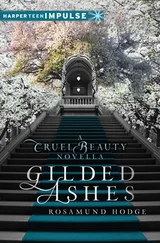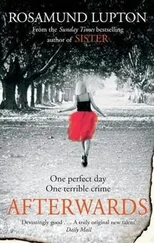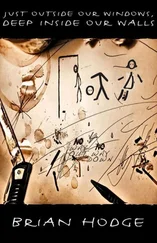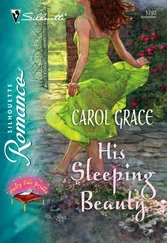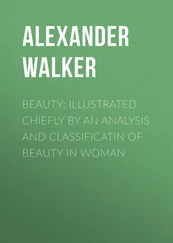This is what they say:
Long ago, the island of Arcadia was only a minor province in the empire of Romana-Graecia. It was a half-wild land populated only by imperial garrisons and a rude, unlettered people who hid in thickets to worship their old, uncivilized gods and refused to call their land anything except Anglia. But when the empire fell to barbarians—when the Athena Parthenos was smashed and the seven hills burnt—Arcadia alone remained unravaged. For Prince Claudius, the youngest son of the emperor, fled there with his family. He rallied the people and the garrisons, beat back the barbarians, and created a shining kingdom.
No emperor before nor king after was ever so wise in judgment, so terrible in battle, so beloved of gods and men. They say that the god Hermes himself appeared to Claudius and taught him the Hermetic arts, revealing secrets that the philosophers of Romana-Graecia had never discovered.
Some say that Hermes even granted him the power to command demons. If so, then Claudius was truly the most powerful king that ever lived. Demons—those scraps of idiot malice, begotten in the depths of Tartarus—are as old as the gods, and a few have always escaped their prison to crawl through the shadows of our world. No one but the gods can stop them and no one at all can reason with them, for any mortal who sees them goes mad, and demons only desire to feast on human fear. Yet Claudius, they say, could bind them into jars with a word, so that in his kingdom nobody needed to fear the dark.
And perhaps that was where the trouble began. Arcadia was greatly blessed, and sooner or later, every blessing has a price.
For nine generations, the heirs of Claudius ruled Arcadia with wisdom and justice, defending the island and keeping the ancient lore alive. But then the gods turned against the kings, offended by some secret sin. Or the demons that Claudius had bound at last broke free. Or (but few dare say this) the gods died and left the gates of Tartarus unlocked. Whatever the reason, what happened is this: The ninth king died in the night. Before his son could be crowned the next morning, the Gentle Lord, the prince of demons, descended upon the castle. In one hour of fire and wrath he killed the prince and rent the castle stone from stone. And then he dictated to us the new terms of our existence.
It could have been worse. He did not seek to rule us like a tyrant, nor destroy us like the barbarians. He only asked for tribute, in exchange for holding his demons in check. He only offered his magical, wish-granting bargains to those who were foolish enough to ask for them.
But it was bad enough. For on the night that the Gentle Lord destroyed the line of kings, he also sundered Arcadia from the rest of the world. No more can we see the blue sky that is the face of Father Uranus; no more is our land joined to the bones of Mother Gaia.
Now there is only a parchment dome above us, adorned with a painted mockery of the real sun. There is only a void about and below us. In every shadow, the demons wait for us, a hundred times more common than they were before. And if the gods can still hear us, they no longer raise up women to prophesy on their behalf as sibyls, nor have they answered our prayers for deliverance.
When light glowed through the lacy edges of the curtains, I gave up trying to sleep. My eyes felt swollen and gritty as I staggered to the window, but I ripped the curtains apart and squinted stubbornly at the sky. Just outside my window grew a pair of birch trees, and sometimes on windy nights their branches clattered against the panes of glass; but between their leaves I could see the hills, and three rays of the sun peeked over their dark silhouette.
The ancient poems, written before the Sundering, said that the sun—the true sun, chariot of Helios—was so bright it blinded all who looked upon it. They spoke of rosy-fingered Dawn, who painted the east in shades of pink and gold. They praised the boundless blue dome of the sky.
Not so for us. The wavy, golden rays of the sun looked like a gilt illumination in one of Father’s old manuscripts; they glinted, but their light was less painful than a candle. Once the main body of the sun was risen over the hillside, it would be uncomfortable to look upon, but no more than the frosted glass of a Hermetic lamp. For most of the light came from the sky itself, a dome of cream veined with darker cream, like parchment, through which light shone as if from a distant fire. Dawn was no more than the brighter zone of the sky rising above the hills, the light colder than at noon but otherwise the same.
“Study the sky but never love it,” Father had told Astraia and me a thousand times. “It is our prison and the symbol of our captor.”
But it was the only sky that I had ever known, and after today I would never walk beneath it again. I would be a prisoner in my husband’s castle, and whether I failed or succeeded in my mission— especially if I succeeded—there was no way I could ever escape those walls. So I stared at the parchment sky and the gilt sun while my eyes watered and my head ached.
When I was much younger, I sometimes imagined that the sky was an illustration in a book, that we were all nestled safely between the covers, and that if I could only find the book and open it, we would all escape without having to fight the Gentle Lord. I had gotten halfway to believing my fancy when I said to Father one evening, “Suppose the sky is really—” And he had asked me if I thought that telling fairy tales would save anyone.
In those days, I had still half believed in fairy tales. I had still hoped—not that I would escape my marriage but that first I could attend the Lyceum, the great university in the capital city of Sardis. I had heard about the Lyceum all my life, for it was the birthplace of the Resurgandi, the organization of scholars that was officially founded to further Hermetic research. I was only nine when Father told Astraia and me the secret truth: after receiving their charter, in the very deepest room of the Lyceum’s library, the first Magister Magnum and his nine followers swore a secret oath to destroy the Gentle Lord and undo the Sundering. For two hundred years, all the Resurgandi had labored toward that end.
But that was not why I longed to attend the Lyceum. I was obsessed with it because it was where scholars had first used Hermetic techniques to solve the shortages forced upon us by the Sundering. A hundred years ago, they had learnt to grow silkworms and coffee plants despite the climate and four times as fast as in nature. Fifty years ago, a mere student had discovered how to preserve daylight in a Hermetic lamp. I wanted to be like that student—to master the Hermetic principles and make my own discoveries, not just memorize the techniques Father thought useful—to achieve something besides the fate Father had given me. And I had calculated that if I completed every year’s worth of study in nine months, I could be ready by age fifteen, and I would have two years for the Lyceum before I had to face my doom.
I had tried telling Aunt Telomache about that idea, and she asked me witheringly if I thought that I had time to waste growing silkworms when my mother’s blood cried out for vengeance.
“Good morning, miss.”
The voice was barely more than a whisper. I spun around to see the door cracked open and my maid Ivy peeking through. Then my other maid, Elspeth, shoved past her and bustled into the room with a breakfast tray
There was no more time for regrets. It was time to be strong—if only my head would stop aching. I gratefully accepted the little cup of coffee and drank it down in three gulps, even the grounds at the bottom, then handed it back to Ivy and asked for another. By the time I finished the breakfast itself, I had drunk two more cups and felt ready to face the wedding preparations.
Читать дальше



